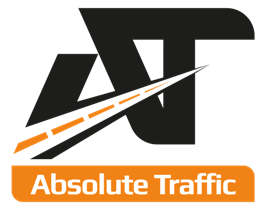
It is essential to know how to avoid fatigue on shift work. As we tend to work longer hours and at all times of the day, fatigue is becoming a major issue in many industries. Fatigue is a daily lack of energy, unusual or excessive whole-body tiredness not relieved by sleep. And, for traffic controllers, fatigue on shift work is far more dangerous than in your average desk job.
Not only can inadequate sleep result in health problems for the individual, such as high blood pressure and obesity, but fatigue also can create safety risks on the job. For instance, exhaustion, memory loss, vision problems and slow reaction times could spell disaster for people who control heavy traffic on noisy, complex worksites.
And, fatigue reduces our alertness and could lead to serious injury or even death for road users, site workers and the controllers. Therefore, traffic controllers and the people who hire them must prioritise fatigue management to ensure their people are fresh and sharp for every shift.
In this article, the team at Absolute Traffic Management wants to share with you some tips to notice the signs of your fatigue, identify its causes, and create a work-life balance. Here is how to avoid fatigue on shift work.
I. Notice The Signs Of Fatigue
First of all, fatigue isn’t just about feeling tired. In fact, fatigue is more than feeling tired and drowsy. In a work context, fatigue is a state of mental and/or physical exhaustion that reduces a person’s ability to perform work safely and effectively.
How do I know if I am fatigued?
For example, if you start to feel fatigued, you may have:
- Blurry vision: Fatigue contributes to poor vision, difficulty focusing, eye spasms, dr eyes, and irritated eyes
- Slower reaction times: Losing sleep can increase your reaction times
- Memory problems: Short-term memory loss can be a sign of mental or emotional conditions as well as brain damage from concussion or sleep deprivation
- Difficulty completing tasks that require hand-eye coordination
- Irritability or even anger at small issues: Anger and sleep deprivation can create a vicious cycle. Losing sleep makes you more irritable and stressed, and stress can lead to further sleep deprivation, increasing anger levels
- Tiredness even after sleep due to the lack of quality sleep at night, rather than the quantity of it
- A need for very long sleep during days off work
II. Identify The Causes Of Your Fatigue
Second, fatigue isn’t just caused by lack of sleep. Indeed, it can occur because of prolonged or intense mental or physical activity, sleep loss and/or disruption of the internal body clock. In brief, many factors can cause fatigue, like:
- Long shifts
- Too many shifts in a row
- Long travel or commute time
- Harsh environmental conditions
- Complex tasks
- Poor sleep hygiene practices
- Lack of exercise
- Poor diet
In fact, this is especially relevant for shift workers who may work day and night shifts in any given week. Because this type of schedule doesn’t give you time to recover, your internal body clock is confused.
And, just as it gets used to a schedule, it changes again. Also, not to mention family and other commitments demand your attention when you get much-needed sleep.
Organisational Changes
In addition, a lot of organisational changes at once can cause fatigue. For instance, the stress of change can interrupt sleep or just exhaust you as your brain tries to process it all.
Home Environment
Furthermore, work may not even be the reason for your fatigue – stresses in your home environment can cause fatigue that then affects your work performance.
Medical Conditions
Medical conditions like hypothyroidism (underactive thyroid gland), oesophageal reflux, nocturnal asthma and chronic painful conditions can disrupt sleep.
Other several medical conditions can cause fatigue, including: – anemia: a lack of enough healthy red blood cells to carry adequate oxygen to your body’s tissues – diabetes: disease that causes high blood sugar. Studies show that people with type 2 diabetes experience extreme tiredness and fatigue – high blood pressure: fatigue, lightheadedness, feeling weak, and shortness of breath are signs of it – obesity: Carrying more weight and experiencing joint or muscle pain can lead to or exacerbate fatigue – heart disease: fatigue also sometimes signals heart failure (a condition in which the heart fails to pump well) or coronary artery disease – chronic fatigue syndrome: a disorder characterized by extreme fatigue or tiredness that doesn’t go away with rest and can’t be explained by an underlying medical condition weakened immune system function. If you’ve noticed that you’re often sick, feel fatigued, it may mean your immune system is weakened. – fibromyalgia (a long-term condition often triggered by a stressful event and that causes pain in the muscles and bones) A thorough physical examination with a variety of tests will help check your overall health. So, book an appointment with your GP for a medical check up. In short, if you don’t address causes, fatigue can turn into longer term and more serious issues, such as high blood pressure, anxiety and depression.
III. Create A Work-Life Balance To Avoid Fatigue On Shift Work
Third, increased reaction time due to lack of sleep is a real danger when working in the traffic control / construction industry. That is why it is important to manage fatigue effectively.
In fact, as a traffic controller, your job requires to stand on your feet for long periods, in sometimes difficult conditions (hot, cold, noisy and busy environments…), and your role requires sustained attention and quick reflexes.
So, here is what you can do to create a work-life balance and avoid fatigue on shift work:
First, wear comfortable footwear and appropriate clothing
Second, take breaks – This is the law and your workplace should have a shift roster with task rotation that leaves room for breaks so workers can rest and refresh.
Third, carry water and food – To keep your body fueled, eat unprocessed foods, fresh fruits and vegetables, lean proteins, whole grains and complex carbs, nuts and seeds, and avoid caffeine.
In addition, prioritise your sleep – Getting sufficient sleep is an essential part of both physical and mental health.
If you’re getting less than six or seven hours of sleep every night, it will affect your performance and increase the risk of an incident. In brief, exercise and diet, sleep routine and environment will all help improve your sleep.
Also, prioritise your health – Keeping yourself fit and healthy will also help in your work. In fact, you’ll feel less tired and more energised, and have a sharper focus.
Also, avoid alcohol and caffeine, practice meditation, breathing techniques and yoga. And, pick a sport that involves hand-eye coordination to improve your reaction time.
Last but not least, talk to your manager – If you see a situation that may be a risk for fatigue, such as rostering issues or long tasks that don’t leave room for breaks, it’s your responsibility to mention it.
IV. Preventing Fatigue At Work Is Everyone’s Responsibility
Finally, preventing fatigue in a work environment is everyone’s responsibility. So, don’t ignore the signs if you see them in yourself. Especially, consider what might be causing it and discuss it with your manager.
And, watch out for signs in other people too! In fact, if you suspect a coworker is fatigued, you should bring it up with them. In addition, your workplace should have fatigue training and policies in a place where all staff can access them. And, they should be part of every worker’s induction.
Also, if you’re a manager, create schedules and rosters that reduce the risk of fatigue. And, you may need to trial different schedules to find out what works best for everyone. So, review them regularly and invite feedback from workers.
Finally, if you keep communication lines open, workers will feel comfortable to discuss their concerns with you. And, Safe Work Australia provides more guidance on managing fatigue in a work environment.
At Absolute Traffic Management, safety is our priority. Contact us if you have any queries or questions.








